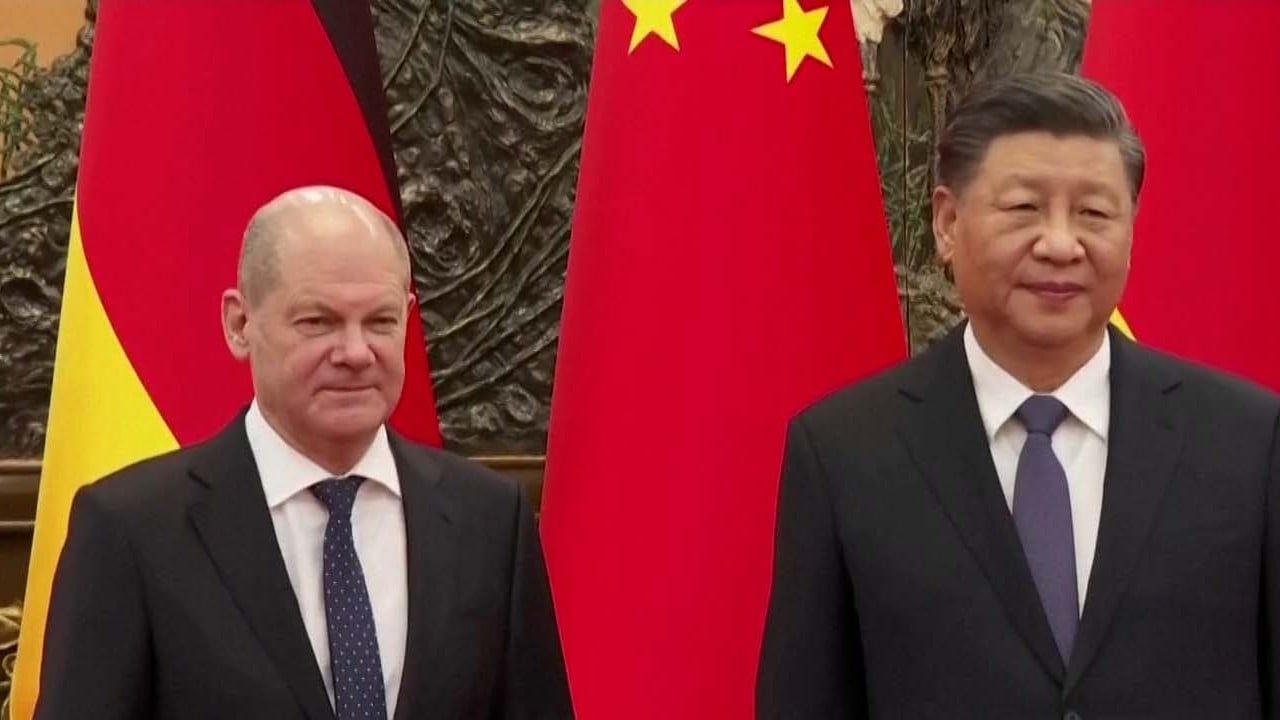
Does German firms’ hot take on China business show limits of Beijing’s charm offensive?
- ‘Profound’ geopolitical implications from international tensions are also weighing on the confidence of German investors in China, survey suggests
- German Chamber of Commerce findings are latest indicator that Beijing’s efforts aimed at boosting business are struggling to shore up confidence among foreigners
German companies in China appear to be growing more wary of being caught in the crossfire between escalating geopolitical frictions and underwhelming market prospects, casting a pall on investor confidence and leading to a more diversified business landscape.
Their sentiment towards doing business in a post-Covid China is also “not as optimistic as initially hoped”, according to a recent German Chamber of Commerce in China survey that suggests more than half of its members expect the environment to remain unchanged or perhaps even worsen this year.
The results, based on a flash survey of 288 German companies in mid-May, may be the latest red flag for Beijing, which has been trying to charm and appease foreign investors to help shore up the nation’s economy, while also striving to stay on good terms with Europe amid tensions with the US.
German carmakers Volkswagen, BMW and Daimler, and chemicals giant BASF, accounted for 34 per cent of all European direct investment in China by value from 2018-21, according to research by New York-based think tank Rhodium Group.
More than 40 per cent of survey respondents expressed optimism about their sector’s recovery by the end of the year owing to China’s reopening, a 5-percentage-point increase compared with last year.
However, more than a third of those polled expected that their own industrial situations would worsen – 6 percentage points higher than last year.
“Geopolitics have a profound impact on companies on the ground, prompting them to drive forward localisation and diversification strategies as risk-management measures,” said Jens Hildebrand, executive director of the chamber’s north China chapter.
Although almost 55 per cent of the surveyed firms said they intended to increase their investments in China over the coming two years, enthusiasm for doing so has waned in the German business community. More than 70 per cent had such plans in February 2021.
Geopolitical instability is a major consideration among companies when it comes to scaling back investments, while China’s lacklustre market performance has also served to undermine their confidence.
They continue to follow a trend seen across China’s business landscape – most foreign firms are choosing to remain in China, but many are doing so while partially withdrawing, accelerating industrial shifts elsewhere or shelving investment plans.
One-fifth of the surveyed German companies now have plans to shift their supply chains away from China – less than one-third that reported such plans a year ago, when citywide lockdowns set off major concerns among investors.
Investors also expect Beijing to take more effective measures to invigorate the market, with many wanting to see leaders invigorate consumer confidence with subsidies.
China’s policymakers need to act now
They expect the government to create a more transparent regulatory framework, more detailed policy explanations, and easier visa procedures. More than 75 per cent of German companies reported slow processing of employee business visas.
Despite Beijing’s attempts to lure more investors since pulling back zero-Covid restrictions, the economy is still facing internal and external headwinds, prompting Nomura last month to cut its forecast for China’s 2023 gross domestic product growth to 5.5 per cent from 5.9 per cent.
April’s weak economic data, including manufacturing activity, consumption and youth employment, led to gloomier prospects for the Chinese economy and rattled investors.
The German chamber called on Beijing to take measures to stimulate consumer confidence, provide targeted support for businesses, and remove existing business obstacles.
“China’s policymakers need to act now,” it said.


